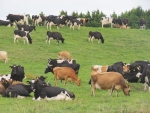Would-be trustees must carefully weigh the risks versus rewards of accepting a role on a trust.
New Zealand has about 500,000 trusts, meaning many people – especially in farming where asset preservation is a key issue – are trustees either personally or as directors of trustee companies.
Often a trust is suggested as a way of protecting assets from creditor claims, reducing income tax obligations or gaining access to rest home subsidies.
However, the effectiveness of a trust in those circumstances is lessened when documentation has not been correctly prepared and decisions of the trustees have not been properly documented and supported. Recent court decisions highlight this point.
Trustees needed to be aware that statutes including the Resource Management Act, Goods and Services Tax Act and the Health and Safety in Employment Act impose potential liabilities. Even when indemnified from the assets of the trust, the trustee could face a personal liability if there were insufficient assets to meet the liability.
In fact, the health and safety aspect is one example where liabilities were often forgotten, particularly when a trust is only acting in the capacity of landlord in relation to farmland that it owns. The trustees need to ensure that sufficient steps have been taken to mitigate the risks that might arise on the land and that the tenant is also taking appropriate steps to mitigate those risks via a health and safety management plan.
The duties a trustee has in relation to the beneficiaries of a trust are also expected to increase as a result of the Law Commission’s review of trusts and the recommendations it has made for reform.
Many professional firms are reconsidering whether they want to continue offering trustee services to their clients.
People who remain as trustees must understand the activities the trust is going to undertake, what risks and liabilities they may face as trustees, and take steps to mitigate those risks by taking professional advice.
• Tony Marshall is tax advisory principal, Crowe Horwarth, Dunedin.










